Perfluoro-2-methyl-2-pentene
Modify Date: 2024-01-09 11:04:03
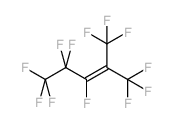
Perfluoro-2-methyl-2-pentene structure
|
Common Name | Perfluoro-2-methyl-2-pentene | ||
|---|---|---|---|---|
| CAS Number | 1584-03-8 | Molecular Weight | 300.04500 | |
| Density | 1.622 | Boiling Point | 53-61ºC | |
| Molecular Formula | C6F12 | Melting Point | 48-50 ℃ | |
| MSDS | N/A | Flash Point | -12ºC | |
| Name | 1,1,1,3,4,4,5,5,5-nonafluoro-2-(trifluoromethyl)pent-2-ene |
|---|---|
| Synonym | More Synonyms |
| Density | 1.622 |
|---|---|
| Boiling Point | 53-61ºC |
| Melting Point | 48-50 ℃ |
| Molecular Formula | C6F12 |
| Molecular Weight | 300.04500 |
| Flash Point | -12ºC |
| Exact Mass | 299.98100 |
| LogP | 4.53220 |
| Vapour Pressure | 4.31 psi ( 20 °C) |
| Storage condition | Flammables area |
| Water Solubility | insoluble |
Synonym:Dodecafluoro-2-methyl-2-pentene; 1,1,1,3,4,4,5,5,5-nonafluoro-2-(trifluoromethyl) Section 2 - COMPOSITION, INFORMATION ON INGREDIENTS
Risk Phrases: 11 Section 3 - HAZARDS IDENTIFICATION EMERGENCY OVERVIEW
Highly flammable.The toxicological properties of this material have not been fully investigated. Potential Health Effects Eye: May cause eye irritation. Skin: May cause skin irritation. Ingestion: May cause irritation of the digestive tract. The toxicological properties of this substance have not been fully investigated. Inhalation: May cause respiratory tract irritation. The toxicological properties of this substance have not been fully investigated. Vapors may cause dizziness or suffocation. Chronic: No information found. Section 4 - FIRST AID MEASURES Eyes: Flush eyes with plenty of water for at least 15 minutes, occasionally lifting the upper and lower eyelids. Get medical aid. Skin: Get medical aid. Flush skin with plenty of water for at least 15 minutes while removing contaminated clothing and shoes. Wash clothing before reuse. Ingestion: Never give anything by mouth to an unconscious person. Get medical aid. Do NOT induce vomiting. If conscious and alert, rinse mouth and drink 2-4 cupfuls of milk or water. Inhalation: Remove from exposure and move to fresh air immediately. If not breathing, give artificial respiration. If breathing is difficult, give oxygen. Get medical aid. Notes to Physician: Antidote: None reported. Section 5 - FIRE FIGHTING MEASURES General Information: As in any fire, wear a self-contained breathing apparatus in pressure-demand, MSHA/NIOSH (approved or equivalent), and full protective gear. Vapors may form an explosive mixture with air. Vapors can travel to a source of ignition and flash back. During a fire, irritating and highly toxic gases may be generated by thermal decomposition or combustion. Will burn if involved in a fire. Use water spray to keep fire-exposed containers cool. Extremely flammable liquid and vapor. Containers may explode in the heat of a fire. Vapors may be heavier than air. They can spread along the ground and collect in low or confined areas. Extinguishing Media: For small fires, use dry chemical, carbon dioxide, water spray or alcohol-resistant foam. For large fires, use water spray, fog, or alcohol-resistant foam. Use water spray to cool fire-exposed containers. Water may be ineffective. Do NOT use straight streams of water. Section 6 - ACCIDENTAL RELEASE MEASURES General Information: Use proper personal protective equipment as indicated in Section 8. Spills/Leaks: Absorb spill with inert material (e.g. vermiculite, sand or earth), then place in suitable container. Clean up spills immediately, observing precautions in the Protective Equipment section. Sweep up or absorb material, then place into a suitable clean, dry, closed container for disposal. Remove all sources of ignition. Use a spark-proof tool. Provide ventilation. A vapor suppressing foam may be used to reduce vapors. Section 7 - HANDLING and STORAGE Handling: Wash thoroughly after handling. Use with adequate ventilation. Ground and bond containers when transferring material. Use spark-proof tools and explosion proof equipment. Avoid contact with eyes, skin, and clothing. Empty containers retain product residue, (liquid and/or vapor), and can be dangerous. Keep container tightly closed. Keep away from heat, sparks and flame. Avoid ingestion and inhalation. Do not pressurize, cut, weld, braze, solder, drill, grind, or expose empty containers to heat, sparks or open flames. Storage: Keep away from heat, sparks, and flame. Keep away from sources of ignition. Store in a tightly closed container. Store in a cool, dry, well-ventilated area away from incompatible substances. Flammables-area. Section 8 - EXPOSURE CONTROLS, PERSONAL PROTECTION Engineering Controls: Use adequate ventilation to keep airborne concentrations low. Exposure Limits CAS# 1584-03-8: Personal Protective Equipment Eyes: Wear appropriate protective eyeglasses or chemical safety goggles as described by OSHA's eye and face protection regulations in 29 CFR 1910.133 or European Standard EN166. Skin: Wear appropriate protective gloves to prevent skin exposure. Clothing: Wear appropriate protective clothing to prevent skin exposure. Respirators: A respiratory protection program that meets OSHA's 29 CFR 1910.134 and ANSI Z88.2 requirements or European Standard EN 149 must be followed whenever workplace conditions warrant respirator use. Section 9 - PHYSICAL AND CHEMICAL PROPERTIES Physical State: Liquid Color: colorless Odor: Not available. pH: Not available. Vapor Pressure: 4.31 PSI @20C Viscosity: Not available. Boiling Point: 53 - 61 deg C Freezing/Melting Point: Not available. Autoignition Temperature: Not available. Flash Point: -12 deg C ( 10.40 deg F) Explosion Limits, lower: Not available. Explosion Limits, upper: Not available. Decomposition Temperature: Solubility in water: insoluble Specific Gravity/Density: 1.6220g/cm3 Molecular Formula: C6F12 Molecular Weight: 300.04 Section 10 - STABILITY AND REACTIVITY Chemical Stability: Stability unknown. Conditions to Avoid: Incompatible materials, ignition sources, excess heat. Incompatibilities with Other Materials: Oxidizing agents. Hazardous Decomposition Products: Carbon monoxide, irritating and toxic fumes and gases, carbon dioxide, hydrogen fluoride gas. Hazardous Polymerization: Has not been reported Section 11 - TOXICOLOGICAL INFORMATION RTECS#: CAS# 1584-03-8 unlisted. LD50/LC50: Not available. Carcinogenicity: Perfluoro-2-methyl-2-pentene - Not listed by ACGIH, IARC, or NTP. Section 12 - ECOLOGICAL INFORMATION Section 13 - DISPOSAL CONSIDERATIONS Dispose of in a manner consistent with federal, state, and local regulations. Section 14 - TRANSPORT INFORMATION IATA Shipping Name: FLAMMABLE LIQUID, N.O.S.* Hazard Class: 3 UN Number: 1993 Packing Group: II IMO Shipping Name: FLAMMABLE LIQUID, N.O.S. Hazard Class: 3.2 UN Number: 1993 Packing Group: II RID/ADR Shipping Name: FLAMMABLE LIQUID, N.O.S. Hazard Class: 3 UN Number: 1993 Packing group: II Section 15 - REGULATORY INFORMATION European/International Regulations European Labeling in Accordance with EC Directives Hazard Symbols: Not available. Risk Phrases: R 11 Highly flammable. Safety Phrases: S 9 Keep container in a well-ventilated place. S 16 Keep away from sources of ignition - No smoking. S 28A After contact with skin, wash immediately with plenty of water. S 33 Take precautionary measures against static discharges. S 37 Wear suitable gloves. S 45 In case of accident or if you feel unwell, seek medical advice immediately (show the label where possible). WGK (Water Danger/Protection) CAS# 1584-03-8: No information available. Canada None of the chemicals in this product are listed on the DSL/NDSL list. CAS# 1584-03-8 is not listed on Canada's Ingredient Disclosure List. US FEDERAL TSCA CAS# 1584-03-8 is not listed on the TSCA inventory. It is for research and development use only. SECTION 16 - ADDITIONAL INFORMATION N/A |
| Hazard Codes | F:Flammable; |
|---|---|
| Risk Phrases | R11 |
| Safety Phrases | S16 |
| RIDADR | UN 1993 |
| WGK Germany | 3 |
| Packaging Group | II |
| HS Code | 2903399090 |
| Precursor 8 | |
|---|---|
| DownStream 8 | |
| HS Code | 2903399090 |
|---|---|
| Summary | 2903399090. brominated,fluorinated or iodinated derivatives of acyclic hydrocarbons. VAT:17.0%. Tax rebate rate:13.0%. . MFN tariff:5.5%. General tariff:30.0% |
| Perfluoro-2-methylpent-2-ene |
| MFCD00015724 |
| Perfluoro(2-methyl-2-pentene) |
| EINECS 216-436-1 |
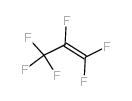 CAS#:116-15-4
CAS#:116-15-4 CAS#:2070-70-4
CAS#:2070-70-4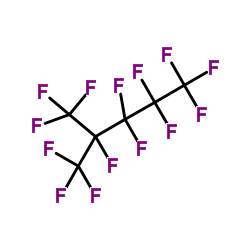 CAS#:355-04-4
CAS#:355-04-4 CAS#:116-14-3
CAS#:116-14-3 CAS#:382-21-8
CAS#:382-21-8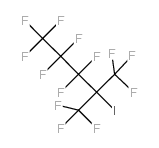 CAS#:102780-88-1
CAS#:102780-88-1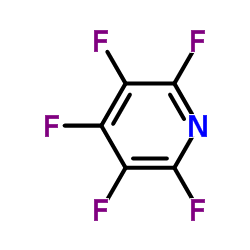 CAS#:700-16-3
CAS#:700-16-3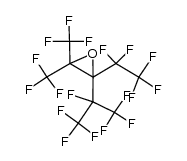 CAS#:103697-21-8
CAS#:103697-21-8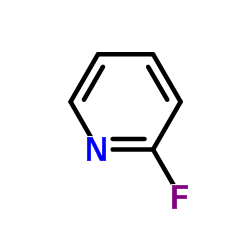 CAS#:372-48-5
CAS#:372-48-5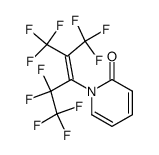 CAS#:78686-95-0
CAS#:78686-95-0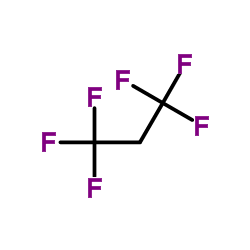 CAS#:690-39-1
CAS#:690-39-1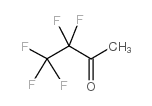 CAS#:374-41-4
CAS#:374-41-4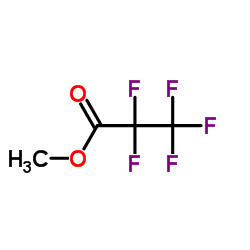 CAS#:378-75-6
CAS#:378-75-6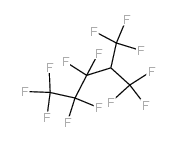 CAS#:30320-28-6
CAS#:30320-28-6 CAS#:75-73-0
CAS#:75-73-0